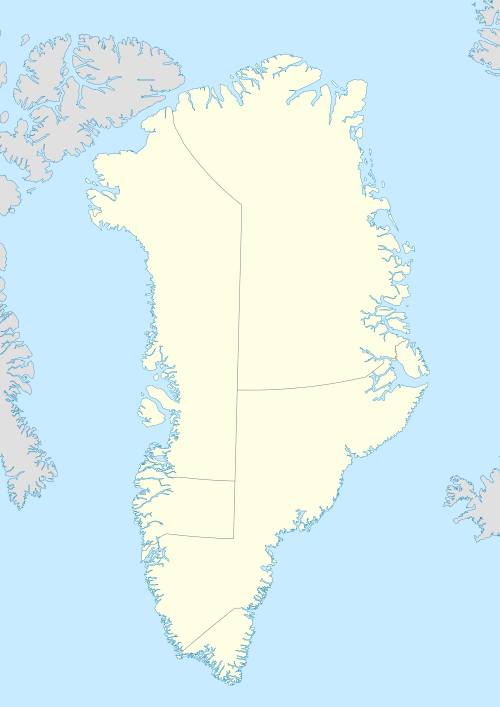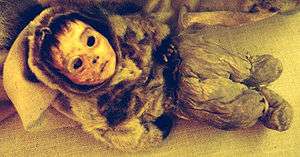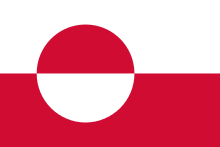Qilakitsoq
|
The mummy of a six-month-old boy | |
| Discovered | 1972 |
|---|---|
| Present location | Nuussuaq Peninsula, Greenland |

Qilakitsoq is an archaeological site on Nuussuaq Peninsula, on the shore of Uummannaq Fjord in northwestern Greenland. Formally a settlement, it is famous for the discovery of eight mummified bodies in 1972. Four of the mummies are currently on display in the Greenland National Museum.
Archaeological finds
The remains that were found in an icy tomb dated to AD 1475.[1] Four of these bodies were preserved well due to being buried under a rock in cold temperatures. In essence, they were freeze dried.[2]
The mummies in the first grave included 6 women stacked on top of each other with a boy on top and a very-well preserved baby on top of them all. A nearby grave contained three more women piled on top of each other.[1] Both pits were covered in stones, the arrangement of which alerted a pair of brothers who were out hunting in 1972. After turning over a few stones, the brothers found the mummies, re-closed the grave and alerted authorities. However, it took until 1977 before the authorities investigated the find.
Along with the mummies in the graves were 78 pieces of clothing made from seal, reindeer and other skins, some of which displayed a sense of fashion. The boy had features which may have been symptoms of Down syndrome, and five of the six adult females bore faint facial tattoos.
In 2007, DNA testing showed a relatively close family connection between all the mummies.[3]
See also
| Wikimedia Commons has media related to Qilakitsoq. |
References
- 1 2 The Genetic Genealogist
- ↑ The Official Tourism and Business Site of Greenland Archived November 18, 2009, at the Wayback Machine.
- ↑ Gilbert, M. Thomas P.; Djurhuus, Durita; Melchior, Linea; Lynnerup, Niels; Worobey, Michael; Wilson, Andrew S; Andreasen, Claus; Dissing, JøRgen (2007). "MtDNA from hair and nail clarifies the genetic relationship of the 15th century Qilakitsoq Inuit mummies". American Journal of Physical Anthropology. 133 (2): 847–53. doi:10.1002/ajpa.20602. PMID 17427925.
- Hansen, Jens P. Hart; Meldgaard, Jørgen and Nordqvist, Jørgen (1985) "The Mummies of Qilakitsoq" National Geographic 167(2): pp. 191–207
- Whitaker, Ian (2009). "Mummifield Greenland Exkimos the mummies from Qilakitsoq: Eskimos in the 15th century. J. P. Hart Hansen and H. C. Gulløv 1989. Meddelelser om Grønland: Man and Society 12". Polar Record. 27 (161): 143. doi:10.1017/S0032247400012432.
Coordinates: 70°36′31″N 52°10′55″W / 70.60861°N 52.18194°W

